FREAK ELECTIONS AND OTHER SCARY STORIES
Elites consistently underestimate the sophistication of the Singapore electorate.
There is something quite poetic about holding the General Election during the seventh month of the Chinese lunar calendar. In traditional Taoist belief, Hungry Ghost Month is a time to appease wandering souls. You are supposed to make offerings and stage performances in the hope that the satiated spirits will return to the netherworld where they belong.
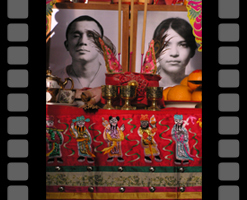
NOT GE CANDIDATES. Pictures from Kelvin Tong’s Hungry Ghost horror flick “The Maid” (2005), screened last week at the Singapore Film Festival Hong Kong.
All this bears an uncanny resemblance to how the People’s Action Party views elections. It’s a time when the unpredictable masses pour out from their homes, led by mischief-making Opposition politicians. This is not what the serious business of government is supposed to be all about, but the PAP has to play along with the wayang for a couple of weeks, making promises and selling soundbites. Perform these rituals, and the malcontents will skulk away for another five years.
This attitude belies the fact that, with unfailing consistency, Singaporeans have used elections to reward the PAP’s competence with term after term of uninterrrupted power. Yet, Lee Kuan Yew never hid his skepticism about democratic politics, and that unease is now part of the PAP’s DNA. It is why the campaign period is kept as short as possible, and, even then, was believed to require a day for Cooling Off at the end.
For the 2015 sequel in this horror story franchise, the trailers say that, with all seats being contested, continued PAP government is perched on a knife edge. It could get kicked out of power on September 11, leaving Singapore in the hands of, say, a WP-NSP-SDP alliance.
Since there is not much excitement in Singapore politics, it is a fun pastime to play around with such electoral math. As long we understand that it is a figment of the imagination, like Frankenstein, riding a unicorn.
There is simply no evidence that the Singapore electorate is prone to impulsive, flighty or fickle behaviour. Look at the way it votes and you’ll see an impressively level-headed public that knows what it wants.
First, it wants the PAP running Singapore. The message from the popular vote is clear enough: the PAP has never scored less than 60%. Every opinion poll ever conducted puts approval and confidence ratings even higher than that.
Second, the majority doesn’t like a dominant party system. It wants an Opposition in Parliament to make the PAP more accountable than it has been.
Third – and most reassuringly for anyone fearing a freak result – the Singapore public is neither impatient nor desperate. It is prepared to wait for the Opposition to improve before voting more of them in. It will give Opposition candidates a handicap, but never a free pass. Past elections show that they need to clear a pretty high minimum credibility threshold before scoring higher than 45%.
What seems to upset the PAP is that too many voters are focusing on what, in its view, is the wrong question. The ruling party wants people to ask, “Who is fit to govern?” Instead, they are asking, “Do we have enough Opposition?”
But one of the essential truths about democracy is that it’s not just the answers that are in the hands of voters – it’s also the questions. Candidates can try to influence voters’ priorities, but cannot dictate them. And I suspect that as long as many Singaporeans see the PAP as overly dominant, they will focus on what the PAP is convinced is the “wrong” question.
That question will only change when the current disequilibrium is corrected. If and when the Opposition secures around 20 seats, voters will probably stop giving its candidates a handicap. PAP and Opposition candidates will be assessed on par, and voters will focus on the PAP’s preferred question, of who should govern.
All the above may seem like conjecture, but it is more grounded in the facts of Singaporean voting behaviour than the counter-view – that Singaporeans may accidentally or impulsively evict a government that they actually want to remain in power.
A public that takes 32 years to grow its number of elected Opposition MPs from one to seven can hardly be described as experimental risk-takers.
If anyone wants to argue that Singaporean voters cannot be trusted to make calm collective decisions in their own interests, I’m prepared to concede I’m wrong, but I’d like to see his evidence first.
Till then, I’m declaring faith in my country’s citizens, enough of whom I know will vote for a reasonable balance of stability and change, at a pace they are comfortable with. It may not exactly match my own wishes, or the PAP’s, or the Opposition’s. But it’ll be what my fellow Singaporeans want, and that’s good enough for me.
The spectre of freak elections
Our thinking about election scenarios hasn’t been helped by the muddy notion of “freak” elections. (As if that were not enough, there was a spirited discussion about “super-freak” elections last year.)
If the outcome differs from the preferences of the losing party or its supporters, that’s not a freak election. That’s just an election. Conversely, if the outcome can be guaranteed by any one party and there’s absolutely no risk of surprises, that’s not a non-freaky election – it’s probably fraud.
It isn’t even a freak election if people vote against what all experts agree is in the public’s enlightened self-interest. It is precisely because we have no mechanism to second-guess the electorate, and because no group of experts should decide on behalf of everyone else, that we need to go through the cumbersome process of elections in the first place.
Instead, we should define a freak election as one that yields a result that the majority of voters didn’t actually want. This outcome is possible because voting is a kind of collective action that is prone to coordination problems: we act partly based on our expectations of others’ actions, but we don’t really know what they will do.
For example, if you want the PAP in charge but also want more Opposition, how you use your vote will depend a lot on your estimation of the state of play. If you live in a hot seat, and you believe that the national tide is in the PAP’s favour, you might be inclined to help the Opposition win in your constituency. On the other hand, if you’re convinced that the Opposition is going to do very well nationally, you might vote for the PAP in your ward.
In either case, if you and others like you assess wrongly, you’d end up using your vote in a way that goes against your own wishes. You overestimate the PAP, vote Opposition, and contribute to ousting the PAP, to your horror. But note that a freak election could work the other way: you underestimate the PAP’s popularity, give your vote to the ruling party, and end up with a decimated Opposition, contrary to your wishes.
Such coordination problems can be solved by having more timely and accurate information. So, there is actually a simple solution to banish the spectre of freak elections: allow opinion polling during the campaign. Arm voters with enough quality information about their fellow Singaporeans’ sentiments, and there will be an extremely low chance that they will get election outcomes that they do not intend.
Most countries allow such polls, which is why the term “freak election” seems to be used more in Singapore than anywhere else.


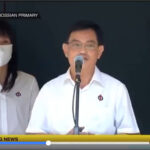

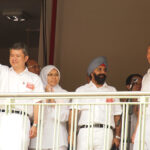
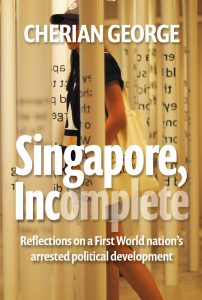
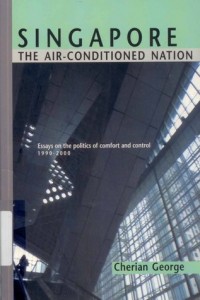
Comments are closed.